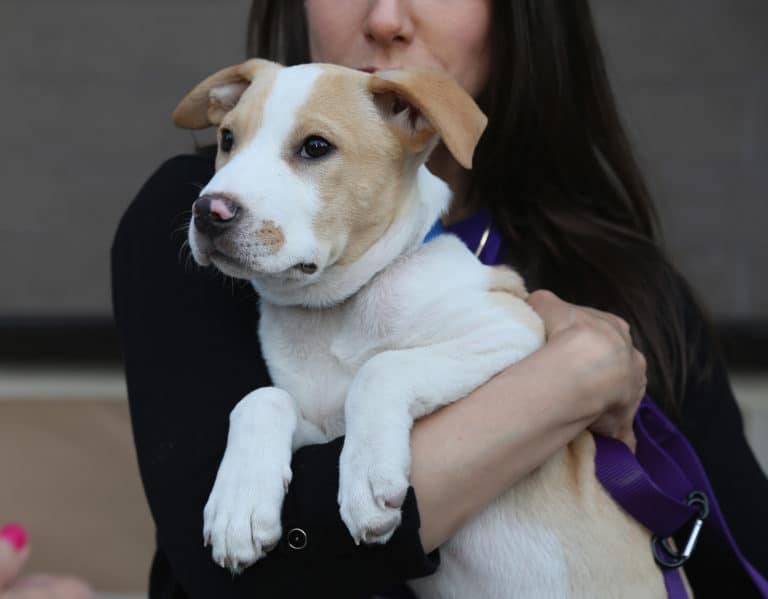A foster pup can be a wonderful house guest and it can be an excellent way to help a dog in need when you don’t have the ability to make a long term adoption commitment. Not only does it help the dog you are fostering but it helps the local shelter or rescue group accommodate more animals. Even though your foster home may not be a forever home, allowing a dog to thrive in a less stressful and more loving environment. This in turn will allow the dog to get adopted sooner assuming of course that you don’t fall in love and foster fail your way to a new dog.
Fostering a dog in Las Vegas
Fostering a dog can be fun and there are lots of Las Vegas rescue organizations that need your help. The Barx Parx Foundation partners with many local rescue organizations who are always looking for your help fostering. Las Vegas is a city in need of animal resources especially in the summer heat. Shelters often struggle with the expense of properly trained staff and climate controlled facilities. By fostering a pet, you learn valuable insight about the pup. You may learn that the dog gets along with children, is afraid of the mailman or perhaps doesn’t get along with cats. All of this information can be invaluable for adoption information and placement in a successful forever home.
Some foster homes intentionally select dogs that aren’t a good fit to become a permanent part of the household while others use fostering as a way to determine long term suitability of a dog that they think has the potential to be a good fit. If you go into a foster with an inkling of intent to keep the pup, make sure that he or she meets the long term requirements to mesh well with your lifestyle. If you decide that you simply cannot live without giving this pup a forever home, contact the shelter and let them know as soon as you are certain of your decision. The sooner they can move this pup into your care, the sooner they can bring another dog into the shelter.
What are the requirements to foster a dog?
The requirements to become a foster home can be very different depending on the rescue organization that you are fostering for. It is common for a foster organizations to request an application with various personal information, details about your household including current and past pets, home type (condo, apartment, house, etc) and ages of your human household members. It is also likely that they will want to verify vaccinations for the other pets in your home and they may even want to take a tour of your home to determine suitability. It is common for them to ask how many hours per day the foster dog will be crated or otherwise left unsupervised. If everything makes sense, they will likely ask you to complete a foster care agreement in which they will ask you to verify the level of care and supervision that you will provide.
Remember also that purchases made for foster care such as food or veterinary care can be considered donations to the shelter and may be tax deductible, please consult with your tax preparation professional. Your foster dog will almost always come to you with a name, please resist the urge to rename the dog while in your care. A name change will complicate paperwork, the adoption process and will be very confusing for the dog.
Parting ways with your foster dog
It can be tough when it comes time to part ways with your foster pup but helping to screen potential adopters might be a good way to feel involved with the re-homing process. Check with the rescue organization to see if that is an option. Remember that letting go of this pup frees your home up to foster another dog and save another life. You can always ask the new pet parents to send you follow-up stories and photos of your foster friend. Some shelter organizations will allow you to directly contact the forever home although most will not. If the shelter does not allow you to contact the forever home, they may be willing pass the stories and photos along to you.
Remember that is is perfectly normal to feel a roller coster of emotions as you part ways with your foster dog. You can be excited that he/she has found a loving home but also nervous and anxious about the change. The very next moment you may feel panic or regret. This is all normal and part of the grieving process. You can rest assured that you’ve made a difference in this dog’s life by enriching his/her social skills and increasing the chances of adoption.
Fostering isn’t for everyone but if this sounds like something up your alley, check out our fostering page and fill out a foster application with the organization of your choice.

